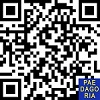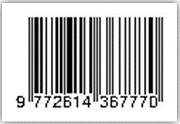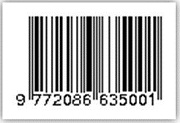STUDENTS’ ACTIVITIES IN INTEGRATED THEMATIC TEXTBOOKS FOR PRIMARY SCHOOL TO MEET 21st CENTURY SKILLS
Abstract
Abstrak: Penelitian ini bertujuan untuk mengetahui apa saja aktivitas keterampilan siswa pada buku teks tematik terpadu jenjang SD yang dibutuhkan pada abad 21 saat ini. Buku teks tematik terpadu yang diteliti berjudul Bumiku dan Menjelajah Angkasa Luar untuk kelas enam yang diterbitkan oleh Kementerian Pendidikan dan Kebudayaan RI tahun 2018 sesuai dengan Kurikulum 2013. Metode penelitian ini adalah deskriptif dengan pendekatan kualitatif. Kriteria yang digunakan dalam menganalisis aktivitas keterampilan siswa pada buku ini mengadaptasi kriteria Partnership for 21st century skills yaitu critical thinking and problem solving skills, communication skill, collaboration skill, dan creativity and innovation skills. Hasil analisis menunjukkan bahwa aktivitas keterampilan siswa yang dominan muncul pada kedua buku ini berdasarkan kriteria tersebut adalah memunculkan ide dan membuat kesimpulan untuk mendorong siswa memiliki critical thinking and problem solving skills, saling berdiskusi untuk mendorong siswa memiliki communication skill, bekerjasama dalam kelompok untuk mendorong siswa memiliki collaboration skill, serta membuat hasil karya sendiri secara kreatif untuk mendorong siswa memiliki creativity and innovation skills. Berdasarkan hasil analisis ini, buku teks tematik terpadu untuk jenjang SD diharapkan dapat memberikan variasi aktivitas keterampilan abad 21 lebih banyak sebagai bekal mempersiapkan siswa dari jenjang dasar untuk bersaing di era globalisasi pada masa yang akan datang.
Abstract: The aim of this research was to know what kind of skills in the today’s 21st century were promoted by integrated thematic textbooks for primary school. Two integrated thematic textbooks have been investigated. They were Bumiku and Menjelajah Angkasa Luar for the sixth grade of primary school published by the Indonesia Ministry of Education and Culture following 2013 Curriculum. The research was descriptive with a qualitative approach. The criteria for century skills used to analyze the content of those textbooks were adapted from the Partnership for 21st century skills. They were critical thinking and problem solving skills, communication skill, collaboration skill, as well as creativity and innovation skills. The result of the analysis showed that the dominant student activities occuring in these textbooks were generating idea and making inference activities to promote critical thinking and problem solving skills, discussing activity to promote communication skill, working in group to promote collaboration skill, and creating product creatively to promote students’ creativity and innovation skills. It was expected that the activities on integrated thematic textbooks would further enhance the skills of primary school students in the 21st century as the first step at the level of education preparing them along with future globalization.Keywords
Full Text:
Download [PDF]References
Abdullah, S. H. S. (2016). Transforming Science Teaching Environment for the 21st Century Primary School Pupils. Malaysian Online Journal of Educational Technology, 4(4), 68–76.
Alismail, H. A., & McGuire, P. (2015). 21 St Century Standards and Curriculum: Current Research and Practice. Journal of Education and Practice, 6(6), 150–155. http://files.eric.ed.gov/fulltext/EJ1083656.pdf
Amini, R. (2017). The Development of Integrated Learning Based Students ’ Book to Improve Elementary School Students’ Competence. In Unnes Science Edication Journal (Vol. 6, Issue 2).
Asri, A. S . (2017). Telaah Buku Teks Pegangan Guru Dan Siswa Pada Mata Pelajaran Bahasa Indonesia Kelas Vii Berbasis Kurikulum 2013. RETORIKA: Jurnal Ilmu Bahasa, 3(1), 70–82. https://doi.org/10.22225/jr.3.1.94.70-82
Ata, A. (2019). Fostering Students’ Civic Skills: Education for Sustainable Democracy. Georgia Educational Researcher, 16(1). https://doi.org/10.20429/ger.2019.160107
Aybek, B., & Aslan, S. (2016). An Analysis of the Units “I’m Learning my Past” and “The Place where We Live” in the Social Studies Textbook Related to Critical Thinking Standards. Eurasian Journal of Educational Research, 16(65), 1–35. https://doi.org/10.14689/ejer.2016.65.03
Boyaci, S. D. B., & Atalay, N. (2016). A Scale Development for 21st Century Skills of Primary School Students: A Validity and Reliability Study. International Journal of Instruction, 9(1), 133–135. https://doi.org/10.12973/iji.2016.9111a
Dewantara, I. P. M. (2020). Curriculum Changes in Indonesia: Teacher Constraints and Students of Prospective Teachers’ Readiness in the Implementation of Thematic Learning at Low Grade Primary School. Elementary Education Online, 19(2), 1047–1060. https://doi.org/10.17051/ilkonline.2020.696686
Lundeberg, V. J. (2016). Pedagogical Implementation of 21st Century Skills. Educational Leadership and Administration: Teaching and Program Development, 27, 82–100.
Miles, M. B ., Huberman, A. M ., & Saldana, J. (2014). Qualitative Data Analysis. A Methods Sourcebook (3rd ed.). California: Sage Publications, Inc.
Nakano, T. C ., & Wechsler, S. M . (2018). Creativity and Innovation: Skills for the 21st Century. Estudos de Psicologia (Campinas), 35(3), 237–246. https://doi.org/10.1590/1982-02752018000300002
Santos, L. F. (2017). The Role of Critical Thinking in Science Education. Journal of Education and Practice, 8(20), 160–173.
Ulfah, A., & Purwanti, S. (2020). The Effectiveness of Thematic Textbook Based on Local Wisdom on Cooperation Character of First Grade Students of Primary School. Universal Journal of Educational Research, 8(7), 2996–3001. https://doi.org/10.13189/ujer.2020.080728
Videnovic, M., & Karadimce, A. (2018). Introduction of 21st Century Skills in Primary Schools : Case Study Macedonia. The 15th International Conference for Informatics and Information Technology (CIIT 2018), April, 142–147.
Wilcox, D., Liu, J. C ., Thall, J., & Howley, T. (2017). Integration of Teaching Practice for Students ’ 21st Century Skills : Faculty Practice and Perception. International Journal of Technology in Teaching and Learning, 13(2), 55–77.
DOI: https://doi.org/10.31764/paedagoria.v11i3.2617
Refbacks
- There are currently no refbacks.
Copyright (c) 2020 Universitas Muhammadiyah Mataram

This work is licensed under a Creative Commons Attribution-ShareAlike 4.0 International License.
Paedagoria : Jurnal Kajian, Penelitian dan Pengembangan Kependidikan
Fakultas Keguruan & Ilmu Pendidikan | Universitas Muhammadiyah Mataram.
_______________________________________________
 | Paedagoria : Jurnal Kajian, Penelitian dan Pengembangan Kependidikan |
______________________________________________
CURRENT INDEXING:
EDITORIAL OFFICE:


















